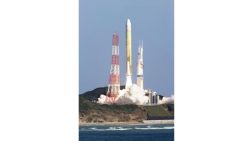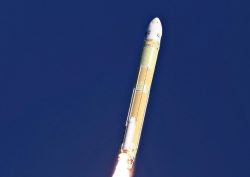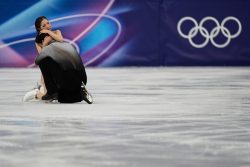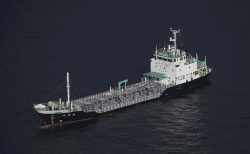Japan follows U.S. in human spaceflight development but remains cautious about own manned spacecraft
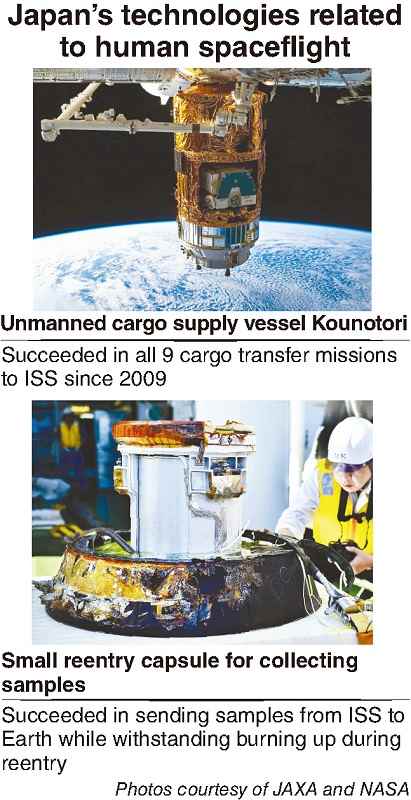
17:25 JST, May 6, 2021
Japan has followed in the footsteps of the United States in the development of human spaceflight.
The Japan Aerospace Exploration Agency (JAXA) has taken part as a member of the NASA team, together with the space agencies of Europe and Canada, in the U.S.-Russia-led International Space Station program. It has also made its intentions clear to send astronauts to the moon with NASA’s Artemis lunar exploration program.
As for China’s Tiangong space station program, a senior official at the Education, Culture, Sports, Science and Technology Ministry said, “It is unrealistic to cooperate on a governmental level with China under the present conditions where the United States and China are in a fierce confrontation.”
With Japan’s eye on conducting human spaceflight activities under the Artemis program, JAXA hopes to continue to make use of the ISS as a venue to nurture its astronauts.
Regarding the use of the ISS from 2025 onward, however, no conclusions have been reached even in the United States, leaving it difficult to foresee how many astronauts would be needed in the future and what scale of budget would have to be secured.
Another problem for Japan is that since it has been relying on U.S. and Russian spacecraft to take its astronauts to and from outer space, Japan has had difficulty drawing up the nation’s own human spaceflight strategy for many years.
JAXA’s unmanned cargo transfer vehicle Kounotori, which started operations in 2009, has successfully carried out nine consecutive missions to transfer supplies to the ISS. In 2018, the agency succeeded in having a small capsule reenter the atmosphere and return to the Earth without it burning up.
Though JAXA has been accumulating technologies to shuttle items between Earth and outer space, the government has not relaxed its cautious stance on the development of manned spacecraft that could directly impact human life if an accident occurs.
If the sphere of human activities is expanded beyond the moon, more countries will embark on human spaceflight development, which might leave Japan behind.
Hirotaka Watanabe, a specially appointed professor at Osaka University and scholar on space policy, said, “The time has come to discuss head-on the appropriateness of developing Japan’s own manned spacecraft.”
Top Articles in Science & Nature
-

Japan Institute to Use Domestic Commercial Optical Lattice Clock to Set Japan Standard Time
-

Space Mission Demonstrates Importance of International Cooperation, Astronaut Kimiya Yui Says
-

Japan to Face Shortfall of 3.39 Million Workers in AI, Robotics in 2040; Clerical Workers Seen to Be in Surplus
-

Record 700 Startups to Gather at SusHi Tech Tokyo in April; Event Will Center on Themes Like Artificial Intelligence and Robotics
JN ACCESS RANKING
-

Japan Institute to Use Domestic Commercial Optical Lattice Clock to Set Japan Standard Time
-

Israeli Ambassador to Japan Speaks about Japan’s Role in the Reconstruction of Gaza
-

Man Infected with Measles May Have Come in Contact with Many People in Tokyo, Went to Store, Restaurant Around When Symptoms Emerged
-

Prudential Life Insurance Plans to Fully Compensate for Damages Caused by Fraudulent Actions Without Waiting for Third-Party Committee Review
-

Woman with Measles Visited Hospital in Tokyo Multiple Times Before Being Diagnosed with Disease


